China launches high-resolution Earth-observation satellite
Wednesday, 29 September 2021 06:21 China launched a Kuaizhou 1A carrier rocket to place a high-resolution Earth-observation satellite in space on Monday afternoon, according to China Aerospace Science and Industry Corporation.
The State-owned space contractor said in a statement the solid-propellant rocket blasted off at 2:19 pm at the Jiuquan Satellite Launch Center in northwestern China and soon deployed the satellite - J
China launched a Kuaizhou 1A carrier rocket to place a high-resolution Earth-observation satellite in space on Monday afternoon, according to China Aerospace Science and Industry Corporation.
The State-owned space contractor said in a statement the solid-propellant rocket blasted off at 2:19 pm at the Jiuquan Satellite Launch Center in northwestern China and soon deployed the satellite - J MIT professor: Interest in space careers at an all-time high
Tuesday, 28 September 2021 22:45
MIT’s Department of Aeronautics & Astronautics graduate admissions program this past year saw a record number of applicants, most of whom want to work in the space business.
Government shutdown could delay NASA’s Lucy asteroid mission
Tuesday, 28 September 2021 22:23
A NASA asteroid mission that has remained on schedule for a mid-October launch despite disruptions caused by the pandemic is now facing a new challenge: the threat of a federal government shutdown.
Panel: Orbital debris problem is a lot like trying to fix climate change
Tuesday, 28 September 2021 21:51
NASA advisor Bhavya Lal said the debris challenge is similar to the debate over how to addresss climate change.
Starfish Space raises $7 million for constellation-managing space tugs
Tuesday, 28 September 2021 19:58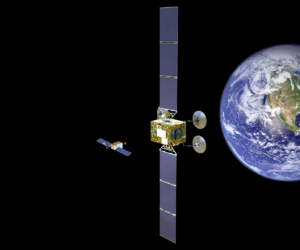
Starfish Space has raised $7 million to develop space tugs that aim to extend the lives of satellites, move them to different orbits and remove debris.
Spire and SpaceChain announce on-orbit blockchain demonstration
Tuesday, 28 September 2021 19:05
Spire Global is working with SpaceChain, a company focused on space applications for blockchain technology, to demonstrate the technology in space and to highlight benefits and challenges.
Op-ed | Putting the UK’s new space strategy into action
Tuesday, 28 September 2021 18:38
The UK's National Space Strategy has not come a moment too soon as orbits become increasingly important and competitive for technology, communications and security. The UK cannot afford to be left behind.
Nasa's Lucy mission prepares for launch to Jupiter's Trojan asteroids
Tuesday, 28 September 2021 18:00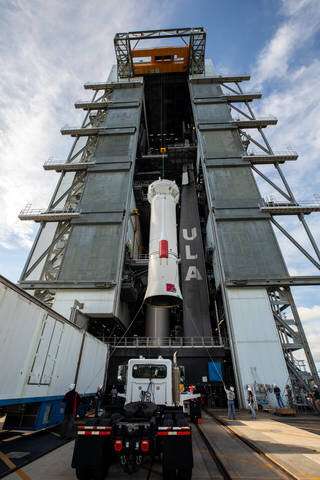
NASA’s Lucy Mission Prepares for Launch to Trojan Asteroids
Tuesday, 28 September 2021 16:59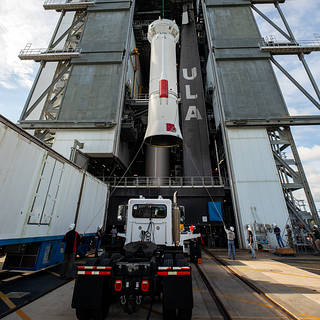 NASA has tested the functions of Lucy, the agency’s first spacecraft to study Jupiter’s Trojan asteroids, filled it with fuel, and is preparing to pack it into a capsule for launch Saturday, Oct. 16.
NASA has tested the functions of Lucy, the agency’s first spacecraft to study Jupiter’s Trojan asteroids, filled it with fuel, and is preparing to pack it into a capsule for launch Saturday, Oct. 16. Ariane 6 launch complex inaugurated at Europe’s Spaceport
Tuesday, 28 September 2021 15:40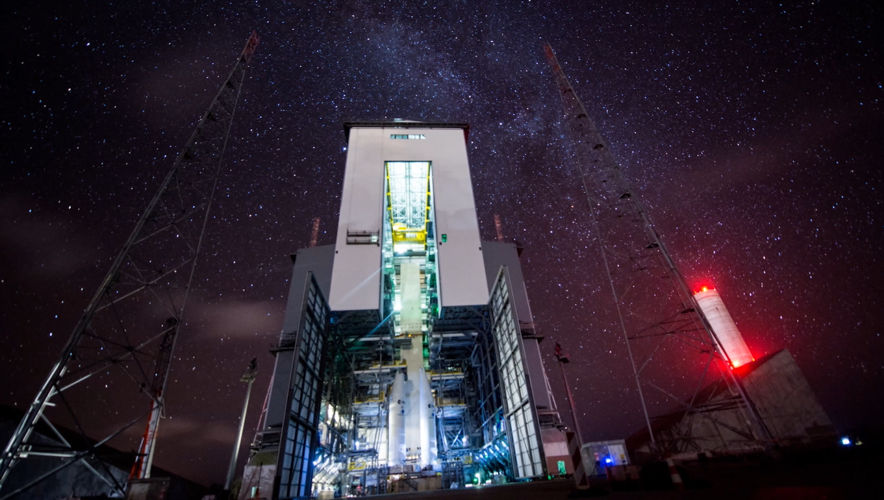
The new launch complex built for Europe’s upcoming Ariane 6 rocket is inaugurated at Europe’s Spaceport in French Guiana.
Space Station port relocation explained – French with English subtitles
Tuesday, 28 September 2021 14:10 Video:
00:03:20
Video:
00:03:20
ESA astronaut Thomas Pesquet is on his second mission to the International Space Station called Alpha. In this video Thomas explains the process behind relocating the SpaceX Crew Dragon Endeavour to another port on the Space Station.
NASA astronauts Megan McArthur, Shane Kimbrough, JAXA astronaut Aki Hoshide and Thomas flew to the International Space Station in Crew Dragon Endeavour as part of Crew-2. On 21 July the four astronauts got into their spacesuits and took their Dragon spacecraft for a spin to undock from the forward port of Harmony and redocked with the same module on another port.
Node 3 | Space Station 360 (in French with English subtitles available)
Tuesday, 28 September 2021 13:30 Video:
00:03:19
Video:
00:03:19
ESA astronaut Thomas Pesquet takes you on a tour of the International Space Station like no other. Filmed with a 360 camera, the Space Station 360 series lets you explore for yourself alongside Thomas’s explanation – episode six is NASA’s Node-3, also known as Tranquility.
Node 3 has cylindrical hull 4.5 m in diameter with a shallow conical section enclosing each end. It is almost 7 m long and, together with the Space Station’s observatory Cupola, weighed over 13.5 tonnes at launch. Built in Europe, Node 3 houses the life-support equipment, the toilet and equipment racks.
Follow Thomas:
ESA orbiter will encounter Mercury October 1
Tuesday, 28 September 2021 13:09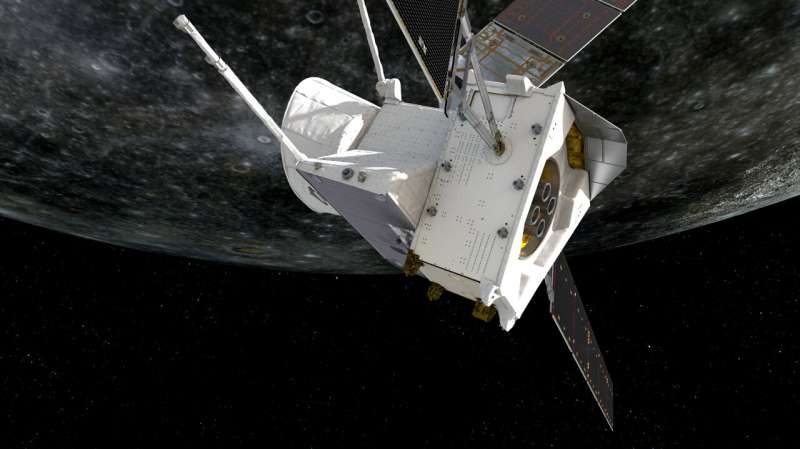
The ESA/JAXA BepiColombo mission to Mercury will make the first of six flybys of its destination planet on 1 October before entering orbit in 2025.
Hot on the heels of its last Venus flyby in August, the spacecraft's next exciting encounter is with Mercury at 23:34 UTC on 1 October (01:34 CEST 2 October). It will swoop by the planet at an altitude of about 200 km, capturing imagery and science data that will give scientists a tantalizing first taste of what's to come in the main mission.
Rocket Lab wins Space Force contract to develop new rocket system
Tuesday, 28 September 2021 10:06 California-based Rocket Lab has won a contract for $24.35 million from the U.S. Space Force to develop an upper stage for the company's Neutron rocket system.
The contract, announced Monday, cements the firm's commitment to becoming a launch provider for the nation's national security space program, according to a Rocket Lab news release.
The contract is part of a $75 million res
California-based Rocket Lab has won a contract for $24.35 million from the U.S. Space Force to develop an upper stage for the company's Neutron rocket system.
The contract, announced Monday, cements the firm's commitment to becoming a launch provider for the nation's national security space program, according to a Rocket Lab news release.
The contract is part of a $75 million res 

